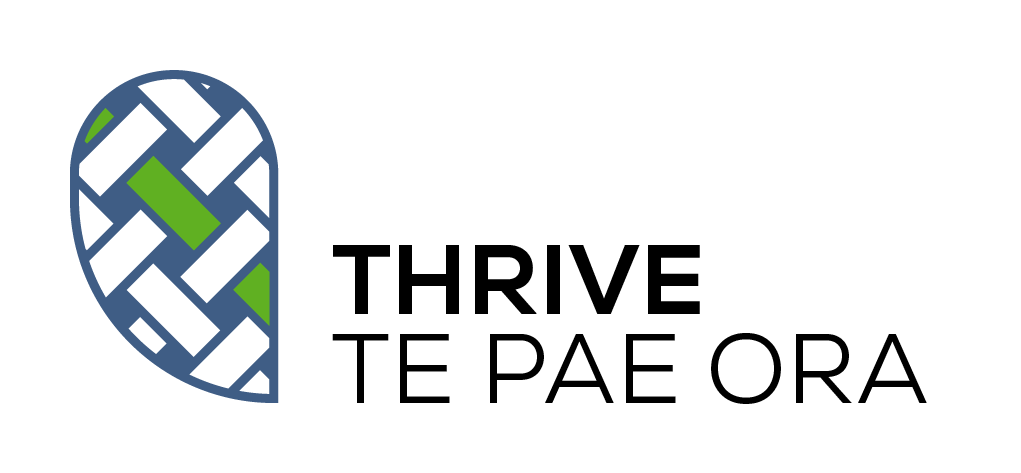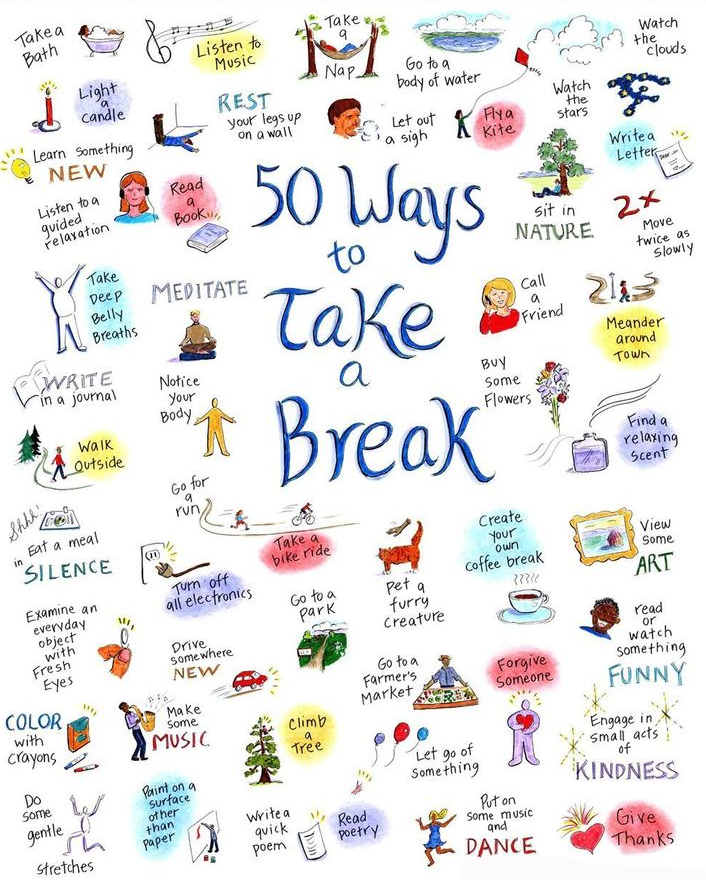Wellbeing eCoach
The following modules will teach you some simple ways to think more positively and tackle the issues that might be affecting the way you feel. The best part is it’s all online, it’s free and you can do it at home in your own time. Prefer some face to face support?
Make a referral so we can chat.
Take Notice
Me Aro Tonu
Paying more attention to the present moment, to thoughts and feelings and to the world around us, boosts our wellbeing.
Before we start to look into a range of strategies to boost our wellbeing, build resilience and strengthen your mental health, it is important to very briefly gain some understanding about how and why our brain and body react to situations or environments in the way that it does and how that cannot be so helpful to us.
Fight, Flight, Freeze Response
Often referred to as our ‘caveman’ or ‘animal’ brain, one of the jobs the amygdala is responsible for is detecting fear and preparing our bodies to react to these fears or threats. When our brain detects something that we deem as a potential threat, our amygdala tells us to go into fight, flight or freeze mode to protect ourselves. It does this by sending the signal out to a bunch of physical responses including things like sweating, releasing adrenaline, sending blood to our major muscle groups to get amped to work well, increase our heart rate and muscle tension. These things were all helpful for cavemen when we needed to respond to a threat like a predator that could eat us – enabling us to run like heck to get away, fight the threat or freeze and remain still hoping the threat wont see us so we can escape. These responses can make us feel and react in many different ways including difficulty breathing, feeling fidgety, restless, shake, sweat, want to avoid situations, shut down, get stomach aches, feel sick, develop tension in our shoulders or neck and the overstimulation of adrenaline and busy mind can keep us up at night. When our caveman brain is constantly over reacting to perceived threats in modern times it can cause exhaustion, insomnia, weakened immune system and feeling stressed all the time.
These days we don’t have physical predators hunting us which means we typically don’t need to fight, flight or freeze in order to survive. However our brains are still wired to be on the constant look out for perceived threats. Which in modern times could be lots of things and could include; arguments/conflict, social get togethers, riding on a bus, exams, crowds, homework and sports performance. People will typically have the same or similar triggers or perceived threats that create this response each time. For example if you have a fear of crowds our amygdala or caveman brain could see a large crowd of people at a social gathering as a perceived threat that could cause us harm, so responds by getting us ready to fight, flight or freeze in order to survive that situation. Repeated negative responses to this situation means we typically try to avoid these situations in the future, which usually reinforces this fear, meaning our amygdala responds more strongly and quickly with the fight/flight /freeze response next time we encounter a crowded situation, meaning we avoid these situations more and more. This creates a negative cycle that is usually unhelpful to us. But, the good news is you can rewire your brain to reduce the fight, flight, freeze response by learning and practicing new strategies like mindfulness, relaxation and grounding. This strengthens a more helpful, thoughtful and calm response to situations or perceived threats or fears. Just like a muscle, if you train it daily it can become strong and more capable. In the same way ignoring certain muscle groups like the fight, flight, freeze response, means it reduces in its unhelpful response.
Mindfulness
Wondering how to practice mindfulness? All hype aside, ‘mindfulness’ simply means paying attention to the present moment. Practicing mindfulness can help you to cope with everyday life and deal with tough times. It can also help you to concentrate, relax and be more productive.
You can develop mindfulness during regular activities such as when walking, driving or even brushing your teeth. The key is to try and focus only on the present moment and not pay too much attention to your thoughts about the past or the future.
In recent years mindfulness has evolved into a range of therapies and self help courses. Most of these techniques focus on being aware of the present moment and simply noticing feelings and thoughts as they come and go. It’s been accepted as a useful therapy for stress, anxiety and depression.
Give it a Try!
MRI scans have shown that after an eight-week course of mindfulness practice, the brain’s “fight or flight” centre, the amygdala, appears to shrink. This primal region of the brain, associated with fear and emotion, is involved in the initiation of the body’s response to stress. As the amygdala shrinks, the pre-frontal cortex – associated with higher order brain functions such as awareness, concentration and decision-making – becomes thicker and stronger, allowing a more thoughtful approach to stress and anxiety provoking situations, rather than a fearful anxious and emotive response. With regular practice of mindfulness, it is said we can respond more calmly in stressful situations enabling us to regulate our emotions better.
Mobile Apps
Mobile devices have given more accessibility to mindful meditation, breathing and relaxation given the extensive number of mobile app options.
These apps have shown positive and strong results when compared to face to face counselling in reducing anxiety, stress and mood symptoms. This is because they are at the users fingertips and their benefits can be utilised at any time.
We have found some great apps that we use and recommend regularly that are free, safe to use and are available on iOS and Android platforms.
Would you like to talk to someone further about
Mindfulness?
You can talk to a trained counselor 24/7, 7 days a week by calling or texting 1737 for free.
or
You can contact our wellbeing coaches for support by emailing
wellbeing@adlnz.org.nz
Relaxation and Breathing
Ever noticed how you breathe when you feel relaxed and calm? Think about how you breathe when you first wake up in the morning, how does your body feel? Breathing exercises can help you relax.
Deep breathing is one of the best ways to lower stress in the body. This is because when you breathe deeply, it sends a message to your brain to calm down and relax. The brain then sends this message to your body. Those things that happen when you are stressed, such as increased heart rate, fast breathing, and high blood pressure, all decrease as you breathe deeply to relax.
Breathing exercises are easy to learn and you can use them wherever you are, if you have a calm place or in a busy classroom, you don’t even need special tools or equipment to do them.
How do you do breathing exercises?
There are lots of breathing exercises you can do to help relax. A good one to start with is belly breathing. It’s simple and quick and easy to do. You’re already breathing so you are halfway there already!
Belly Breathing
Belly breathing is easy to do and very relaxing. Try this basic exercise anytime you need to relax or relieve stress.
1. Sit or lie flat in a comfortable position.
2. Put one hand on your belly just below your ribs and the other hand on your chest.
3. Take a deep breath in through your nose, and let your belly push your hand out. Your chest should not move.
4. Breathe out through your mouth. Feel the hand on your belly go in and use it to push all the air out.
5. Do this breathing 3 to 10 times. Take your time with each breath.
6. Notice how you feel at the end of the exercise.
Try a simple video exercise - belly breathing example:
Box breathing is another breathing exercise:
Yoga and meditation are fantastic ways to practice your intentional breathing and also greatly assist with relaxation.
Adriene has a fantastic free YouTube channel with heaps of great yoga and meditation videos – Meditation for anxiety:
Yoga for anxiety and stress
Self Soothe
A way to remember these skills is to think of soothing each of your five senses.
With Vision
Buy one beautiful flower; make one space in a room nice; light a candle and watch the flame. Wear a piece of clothing or jewellery that is in an empowering colour. Set a place at the table, using your best things, for a meal. Go to a museum with beautiful art. Go sit in the lobby of a beautiful old hotel. Look at nature around you. Go out in the middle of the night and watch the stars. Walk in a part of town that you like. Have a manicure. Look at beautiful pictures in a book. Go to a ballet or other dance performance, or watch one on TV. Be mindful of each sight that passes in front you, not lingering on any.
With Hearing
Listen to beautiful or soothing music, or to invigorating and exciting music. Pay attention to sounds of nature (waves, birds, rainfall, leaves rustling). Sing to your favourite songs. Hum a soothing tune. Learn to play an instrument. Be mindful of any sounds that come your way. Letting them go in one ear and out the other.
With Smell
Use your favourite perfume or lotions, or try them on in the shop; go to The Body Shop or a chemist and sniff their fragrances; spray fragrance in the air; light a scented candle. Put lemon oil on your furniture. Put potpourri in a bowl in your room. Boil cinnamon; bake biscuits, cake or bread. Smell the roses. Go for a walk in a wooded area or walk on a beach and mindfully breathe in the fresh smells of nature.
With Taste
Have a good meal/ have a favourite soothing drink such as herbal tea or hot chocolate (no alcohol): treat yourself to a dessert. Put whipped cream on your coffee. Sample flavours in an ice cream shop. Suck on a piece of peppermint. Chew your favourite gum. Get a little bit of a special food you don’t usually spend the money on such as fresh-squeezed orange juice. Really taste the food you eat; eat one thing mindfully
With Touch
Take a bubble bath; put clean sheets on the bed. Pat your dog or cat. Have a massage; soak your feet. Put creamy lotion on your whole body. Put a cold compress on your forehead. Sink into a really comfortable chair in your home, or find one in a luxurious hotel lobby. Put on clothing or a scarf that feels nice. Brush your hair for a long time. Hug someone. Experience whatever you are touching: notice touch that is soothing.


